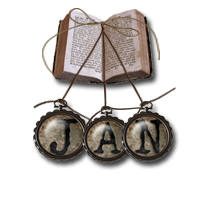Sam knows that he and his friend Lloyd made a colossal mistake when they accepted the ride home. They have ended up in a dark mansion in the middle of nowhere with man who means to harm them. But Sam doesn't know how to get them out. They were trapped, then separated. Now they are alone. Will either of them get out alive? This gripping and hypnotic thriller will have you reading late into the night. (Publisher's summary from Goodreads)
The Long Weekend by Savita Kalhan is an edge-of-your-seat thriller that made me extremely uncomfortable at times, due to the horrific nature of what happens after 11 year-olds Sam and Lloyd mistakenly enter a car after school. Both boys think that the car belongs to the other boy’s father, and end up captive in an isolated mansion. What makes this book a must read is Kalhan’s gripping plot, and realistic characters.
There is nothing more terrifying than the kidnapping of a child and through Kalhan’s vivid and detailed writing the reader is abducted right along with Sam and Lloyd. Rarely is the suspense of a situation maintained throughout an entire story, but once the reality of the boy’s circumstances are fully revealed the tension, panic and terror is so horrific that it is impossible to stop reading. I greatly admired how Kalhan knew just what details to show for maximum effect and which ones leave to the reader’s imagination.
While in and of its self the plot more than effectively makes The Long Weekend a phenomenal read, Kalhan’s strong characterization took the story to a whole other level. Sam is a reluctant hero. He is unsure of himself, but finds an inner strength he had no idea existed and manages to temporarily escape his captor, but finds the courage to put himself back in harm’s way to rescue Lloyd. His quick thinking and careful planning made the story intense and riveting. Lloyd, on the other hand, becomes a very realistic victim. Through him, the reader is able to experience the impact the abductor has had. Lloyd is reduced from the cool, popular, and athletic boy he is at the beginning of the story, to a fearful almost catatonic shell completely dependent on Sam for his survival. Finally, Kalhan’s portrayal of the boy’s kidnapper is brilliantly understated. The reader experiences his rage at Sam and the monstrous ingratiation of Lloyd. He is the specter in the boy’s nightmare and remains nameless, but whose presence looms ominously throughout the story.
The Long Weekend is not for the faint of heart. Its impact is frighteningly real and will stay with you long after have shelved the book.
Source: Received copy for review from author


































































